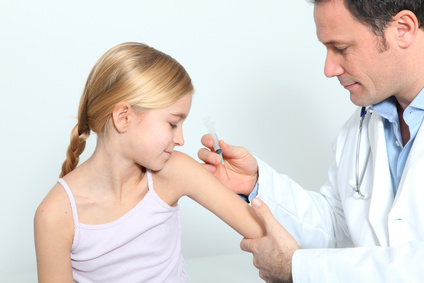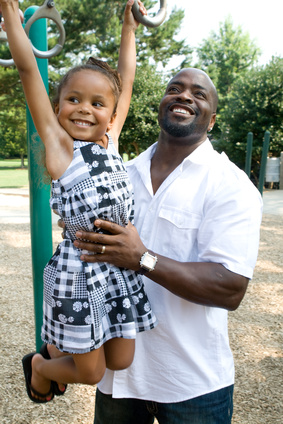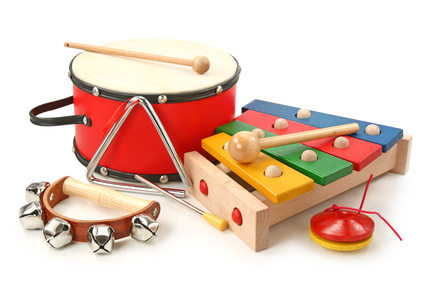Protect Your Child From Depression-Part 1
Children receive a series of immunizations to protect them from diseases such as the measles, mumps, rubella, and polio. They even get vaccinated against the chicken pox.  Wouldn’t it be nice if we could immunize our children against depression? After all, a growing number of people struggle with depression…and, at a younger age. I realize that depression is different than the measles, mumps, polio, or the chicken pox. And, I realize there is no magic shot to prevent depression. Still, wouldn’t it be great to protect your children from depression? To find a way that even if they did experience depression, it would be less severe and shorter-lived?
Wouldn’t it be nice if we could immunize our children against depression? After all, a growing number of people struggle with depression…and, at a younger age. I realize that depression is different than the measles, mumps, polio, or the chicken pox. And, I realize there is no magic shot to prevent depression. Still, wouldn’t it be great to protect your children from depression? To find a way that even if they did experience depression, it would be less severe and shorter-lived?
 Wouldn’t it be nice if we could immunize our children against depression? After all, a growing number of people struggle with depression…and, at a younger age. I realize that depression is different than the measles, mumps, polio, or the chicken pox. And, I realize there is no magic shot to prevent depression. Still, wouldn’t it be great to protect your children from depression? To find a way that even if they did experience depression, it would be less severe and shorter-lived?
Wouldn’t it be nice if we could immunize our children against depression? After all, a growing number of people struggle with depression…and, at a younger age. I realize that depression is different than the measles, mumps, polio, or the chicken pox. And, I realize there is no magic shot to prevent depression. Still, wouldn’t it be great to protect your children from depression? To find a way that even if they did experience depression, it would be less severe and shorter-lived? Well, there may be a way to do just that! No, the answer is not a shot—it’s more of a lifestyle. Of course, there is no way to guarantee that your child will never experience depression. However, there may be some skills you can teach your child to help protect them from depression.
Studies show that several factors contribute to depression. How a person explains things, how a person resolves negative experiences, and how a person interprets events around them affects their susceptibility to depression. In other words, the vaccine against depression is more of a lifestyle and a way of thinking than a shot. So, what can a parent teach their children to limit their chances of experiencing depression? What teaching ingredients make up a potential vaccine against depression? Over the next few weeks, I’d like to share a few ways to help prevent depression in your children.
First, teach your children that actions  make a difference. Feelings of helplessness contribute to depression. People develop a sense of helplessness when they believe that their actions don’t matter. So, teach your children that actions make a difference. Knowing that their actions have an effect on the world around them can protect them from feeling helpless, and, as a result, protects them from depression. How can a parent do this?
make a difference. Feelings of helplessness contribute to depression. People develop a sense of helplessness when they believe that their actions don’t matter. So, teach your children that actions make a difference. Knowing that their actions have an effect on the world around them can protect them from feeling helpless, and, as a result, protects them from depression. How can a parent do this?
 make a difference. Feelings of helplessness contribute to depression. People develop a sense of helplessness when they believe that their actions don’t matter. So, teach your children that actions make a difference. Knowing that their actions have an effect on the world around them can protect them from feeling helpless, and, as a result, protects them from depression. How can a parent do this?
make a difference. Feelings of helplessness contribute to depression. People develop a sense of helplessness when they believe that their actions don’t matter. So, teach your children that actions make a difference. Knowing that their actions have an effect on the world around them can protect them from feeling helpless, and, as a result, protects them from depression. How can a parent do this? When children are very young, play games in which you imitate their behavior. For instance, when they clap their hands, clap your hands, too. When they pat the table, pat the table as well. Your baby will giggle and enjoy the game…and, they will begin to learn that their behavior impacts the people around them. They learn that their parents respond to their actions.
As your children grow, let them play with toys that they can control,  cause/effect toys—the drum that makes noise when they bang it, the figure that pops up when they push the button, or the blocks that fall down when they knock them over. Games such as chess or checkers accomplish similar results as they grow older. They learn that their choices and actions make a difference.
cause/effect toys—the drum that makes noise when they bang it, the figure that pops up when they push the button, or the blocks that fall down when they knock them over. Games such as chess or checkers accomplish similar results as they grow older. They learn that their choices and actions make a difference.
 cause/effect toys—the drum that makes noise when they bang it, the figure that pops up when they push the button, or the blocks that fall down when they knock them over. Games such as chess or checkers accomplish similar results as they grow older. They learn that their choices and actions make a difference.
cause/effect toys—the drum that makes noise when they bang it, the figure that pops up when they push the button, or the blocks that fall down when they knock them over. Games such as chess or checkers accomplish similar results as they grow older. They learn that their choices and actions make a difference. Give them choices throughout the day as well. When you offer a choice, make sure that both options offered are OK by you. For instance, ask them if they “want to take a bath before or after dinner”…or “wear their blue shirt or red shirt today.” As they make these choices, they discover that their decisions matter, their actions make a difference.
Another important area of teaching children that their actions make a difference is discipline. Let them experience the natural consequence of their actions—both the positive and the negative. Although they may not always like the consequences, they will more likely learn that their actions do make a difference!
This is the first step in protecting your child from depression. Teach them that their actions make a difference.